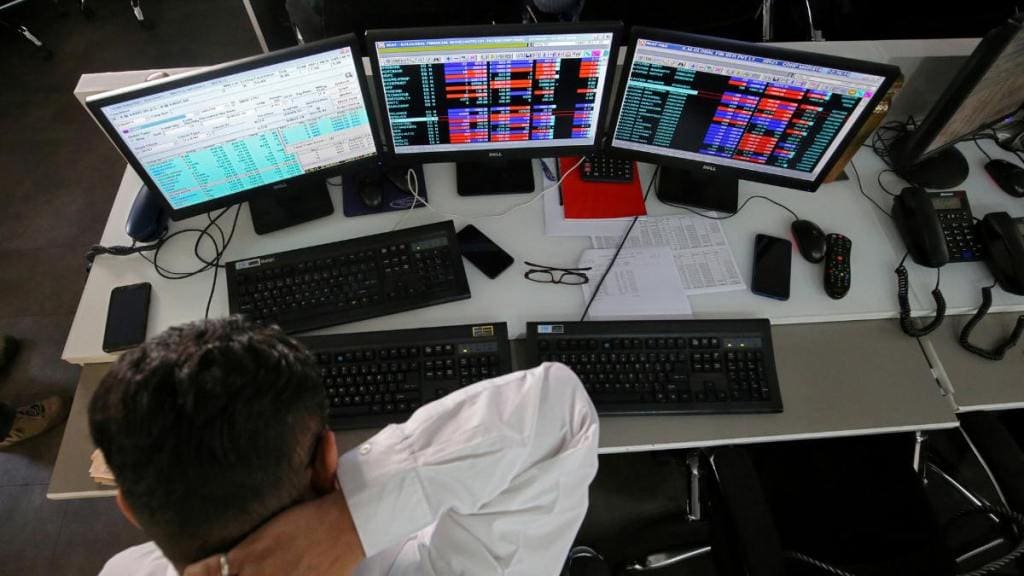Foreign institutional investors (FII) offloaded shares worth net Rs 711.34 crore, while domestic institutional investors (DII) bought shares worth net Rs 537.31 crore on August 8, 2023, according to the provisional data available on the NSE.
For the month till August 8, 2023, FIIs sold shares worth net Rs 5,448.58 crore while DIIs bought shares worth net Rs 4,747. 37 crore. In the month of July, FIIs bought shares worth net Rs 13,922.01 crore while DIIs sold equities worth net Rs 1,184.33 crore.
“Markets traded dull and ended marginally lower, taking a pause after the recent bounce. After the initial uptick, Nifty oscillated in a narrow range and finally settled at 19,570.85 levels. Meanwhile, a mixed trend on the sectoral front kept the traders busy wherein pharma and banking posted modest gains. The broader indices too witnessed a volatile trend but finally managed to end on a flat note,” said Ajit Mishra, SVP – Technical Research, Religare Broking.
“Apart from the mixed global cues, the continued underperformance from the key sectors viz. banking, auto and FMCG are weighing on the sentiment. It is normal to see such days during the consolidation phase so we reiterate our view to limit positions and wait for clarity,” Ajit Mishra added.
On Tuesday, benchmark indices NSE Nifty 50 and BSE Sensex ended in red amid negative global cues. The Nifty 50 dipped 26.45 points or 0.13% to 19,570.85 and Sensex plunged 106.98 points or 0.16% to 65,846.50. In sectoral indices, Bank Nifty rose 126.95 points or 0.28% to 44,964.45, Nifty IT gained 0.15%, Nifty PSU Bank skyrocketed 3.37%, Nifty Pharma soared 0.64% while Nifty Auto fell 0.31%, Nifty FMCG dropped 0.28%, Nifty Metal sank 1.17% and Nifty Realty dipped 0.18%. The top gainers on Nifty 50 were SBI Life Insurance, Hero MotoCorp, Cipla, Tech Mahindra and Wipro, while the top losers were Adani Enterprises, Hindalco Industries, Mahindra & Mahindra, Divi’s Labs and JSW Steel.
Foreign institutional investors (FII) or Foreign portfolio investors (FPI) are those who invest in the financial assets of a country while not being part of it. On the other hand, domestic institutional investors (DII), as the name suggests, invest in the country they’re living in. Political and economic trends impact the investment decisions of both FIIs and DIIs. Additionally, both types of investors – foreign institutional investors (FIIs) and domestic institutional investors (DIIs) – can impact the economy’s net investment flows.

